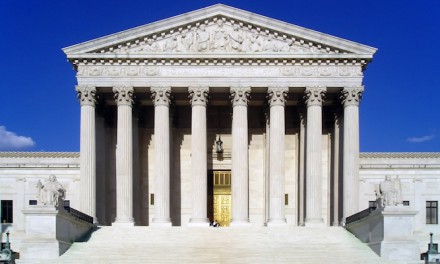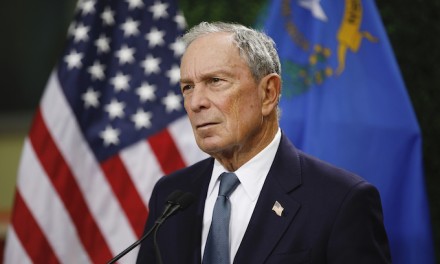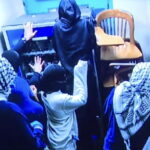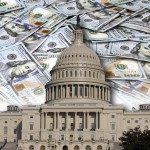JERUSALEM — Prime Minister Benjamin Netanyahu is the favorite to win Tuesday’s general election, but just about everyone in Israel agrees it’s going to be a squeaker as voters decide whether to give the Teflon stalwart of conservatism a fourth consecutive term and make him the longest-serving leader in the nation’s history.
Apart from corruption accusations that have mounted over the past year against Mr. Netanyahu, his Likud party is facing a vigorous challenge from a new centrist party known as Blue and White and from Benny Gantz, a former military chief who has cast himself as the last man standing between common Israelis and a criminal right-wing takeover if Mr. Netanyahu wins.
But does Mr. Gantz, a newcomer to the bare-knuckle side of Israeli politics that Mr. Netanyahu has dominated for so long, have a real chance of becoming prime minister?
“I wouldn’t rule it out,” said Martin Kramer, an American-Israeli scholar at Shalem College in Jerusalem who argues that “Netanyahu fatigue” may have set in, particularly among younger voters who “want a new show.”
Getting younger voters to the polls has been a priority on the campaign trail, where traditional front-burner issues from the Netanyahu wheelhouse, such as Israeli-Palestinian friction and the existential threat posed by Iran, have largely taken a back seat to topics such as traffic congestion, apartment prices and marijuana legalization, which Mr. Netanyahu has said he will consider if he wins.
But looming criminal indictments against Mr. Netanyahu, who has denied allegations of fraud, bribery and breach of trust, also have factored heavily. Mr. Gantz’s Blue and White is polling ahead of Likud, even though Mr. Netanyahu is still projected to come out on top because of the notoriously fractured coalition process in the Knesset, Israel’s 120-seat parliament.
The prime ministership is determined by whoever holds the majority. With no single party having ever won a majority, and neither Likud nor Blue and White likely to do so Tuesday, the coalition is what ultimately matters. Polls predict Likud and a bloc of smaller, right-wing parties will end up with more than 60 seats.
Mr. Netanyahu has made little secret of his willingness to align with even the extreme right parties, pandering to them down the stretch with assertions over the weekend that he will annex Jewish settlements in the occupied West Bank if he wins. The statement outraged Palestinian leaders but was music to the ears of the conservative fringe that has long advocated for such a move.
Mr. Gantz has ramped up his own rhetoric, telling voters Saturday that “Netanyahu is not the messiah, and he’s not a legend that can’t be replaced.
“This is a historic hour, and we have a historic opportunity,” the former military chief said at one rally, according to the Israeli media network Arutz Sheva. “We can go in the direction of hope, unity and reconciliation, or we can choose a model of extremism which will get worse and worse.”
Mr. Gantz has hammered the narrative that Mr. Netanyahu has amassed such power that he is teetering on the verge of corrupt authoritarianism. Mr. Gantz has specifically leveled suspicion that Mr. Netanyahu, if he is re-elected, will seek to push through legislation to grant himself immunity from prosecution on pending corruption charges.
Mr. Netanyahu, known colloquially as “Bibi,” has been prime minister since 2009 and held the post for a term in the late 1990s. If he wins Tuesday, then he will be on pace to surpass David Ben-Gurion, Israel’s first prime minster, in total time spent in the office.
Netanyahu allies in the Trump administration, as well as critics on the U.S. left, are watching the contest warily, but Israeli analysts say the election has boiled down to two basic camps.
“It’s the Bibi fatigue camp versus the indispensable Netanyahu camp,” said Daniel Shapiro, who served as U.S. ambassador to Israel in the Obama administration.
‘Maximalist approach’
“The prime minister’s supporters claim that Israel’s security, expanding foreign relations and economic success are due to Netanyahu’s stewardship and that it would be crazy to trade in his experience for a rookie politician,” Mr. Shapiro, now a visiting fellow with the Institute for National Strategic Studies at Tel Aviv University, told The Washington Times. “His detractors don’t critique his policies as much as they attack his ethics, in light of several pending indictments for corruption and his divisive leadership style.”
Divisiveness has reared its head with the Knesset’s passage last year of legislation defining Israel as the national home of the Jewish people. While the law, as written, protects human rights for all, it states outright that national rights in Israel belong only to the Jewish people.
Palestinians have widely decried the law as an attack on their identity and a stripping of their rights in Israel. Analysts say the sentiment will likely result in diminished Arab voter turnout Tuesday.
Khalil Jahshan, a Palestinian American and executive director of Arab Center Washington, says many Palestinians probably won’t vote because of “the racism that has become institutionalized with the new Jewish national law in Israel.”
“Some people say, ‘Palestinians in Israel, you should stop giving Israel the legitimacy that it uses you for, so don’t participate,'” Mr. Jahshan told The Times. He added that some are asking, “Why are we giving them legitimacy if this is a state just for the Jewish people? We are 20 percent of the population, almost 21, I mean, don’t we count for anything?”
It’s a “maximalist approach,” said Mr. Jahshan, “that if Israel continues to claim it’s a democracy, it should be the state of all of its citizens, just like the United States of America. … No discrimination in terms of religion, color, nationality, whatever.”
He said he personally disagrees with the idea of boycotting the vote.
“To me, the maximalist approach is rather an emotional approach,” he said. “It’s like wetting one’s own pants. You get this initial sense of warm sensation, but in the long term, the disadvantages tend to outweigh the advantages.”
Mr. Jahshan noted that in the current Knesset, Arab parties working under a single Joint List alliance currently hold 13 seats. Although that makes them the third-largest party in the legislative body, no Jewish or other parties are willing to include them in a coalition.
Still, the number of seats held by Arab Israelis in the next Knesset could become consequential, specifically if the body ever holds a no-confidence vote against the prime minister. Analysts say the situation could arise if politics around the Netanyahu corruption allegations escalate to hysteria.
While the impending postelection coalition formation could make or break the prospects for such a situation, some say it is folly to try to predict how the chips will fall.
“The polls actually don’t mean anything,” said Jonathan Schanzer, a Middle East scholar with the Foundation for Defense of Democracies who is in Israel for the election.
“Analysis of Israeli politics in the United States is kind of like the original fake news,” said Mr. Schanzer. “Nobody ever gets it right because nothing ever sticks.”
Mr. Kramer, meanwhile, said he won’t be surprised if Mr. Netanyahu wins at the end of the day and Mr. Gantz and Blue and White make a postelection turn of face by offering to bring the centrist bloc into a coalition with Likud.
“I don’t think that Gantz joined politics to sit in the opposition,” Mr. Kramer said. “I think he would cast it as saving Israel from the alternative extreme right partners who would bring about the alienation of Israel from the United States, American Jewry, etc., etc. So, it would become sort of an emergency situation.”
© Copyright (c) 2019 News World Communications, Inc.
—-
This content is published through a licensing agreement with Acquire Media using its NewsEdge technology.



















Recent Comments